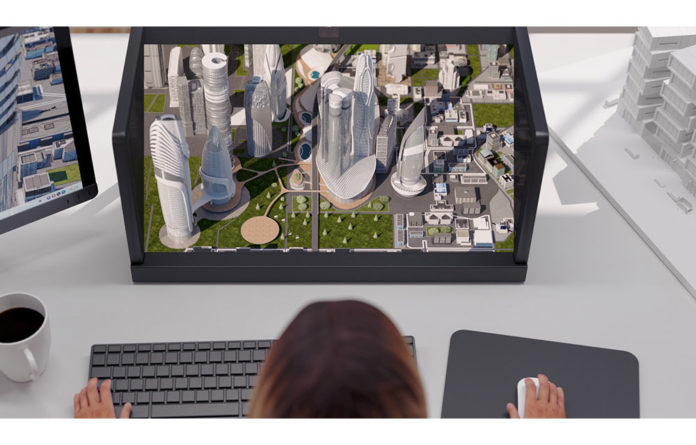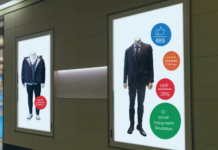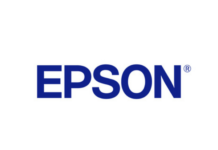Sony Electronics is adding a new model to its Spatial Reality Display portfolio with the addition of the ELF-SR2. At twenty-seven inches, the larger 4K option provides highly realistic, three-dimensional content without the use of special glasses or VR headsets. Highlights of the new Spatial Reality Display offering include an upgraded high-speed vision sensor, image quality enhancing technologies and installation flexibility.
Additionally the ELF-SR2 enables more robust functionality through its support of applications and development. It is optimized for industrial design, surgical planning, architecture, engineering, construction, signage, retail, software/application development, game developers and entertainment applications.
“Our original Spatial Reality Display continues to captivate customers by bringing 3D content to life with an astonishing authenticity and sophistication that demands to be experienced hands-on,” said Rich Ventura, Vice President of Professional Display Solutions, Sony Electronics. “While our users love the technology, we keep hearing the same question from professionals; ‘does this display come in a larger size?’ As we expand into more B2B verticals and environments, I’m happy to say that in addition to a bigger screen, we’ve added some powerful and commonly requested features to enhance content production.
“These include a wider color gamut, a newly developed engine, more advanced high-speed sensors, and rich support for applications and their development—all for an extremely competitive price.”
The display’s visual fidelity is amplified by its immersive depth of field and detailed resolution, in addition to its larger size. New-generation, high-speed vision sensors enable high-speed processing, as well as low latency for reduced motion blur and crosstalk. 10-bit processing supports a wide color gamut that covers Adobe RGB at approximately 100 percent for accurate color reproduction.
The super resolution engine provides upscaling from 2K to 4K. Additionally, the new model offers color moire correction to better address fine details, patterns and lines.
The ELF-SR2’s enhanced facial tracking and recognition senses a viewer’s eyes to provide a natural and comfortable visual experience, while the wide viewing angle enables consistency and accuracy from numerous vantage points.
The ELF-SR2 promotes application compatibility, as well as efficient and streamlined development through software development kits (SDKs). With support for leading SDKs including Unity and, Unreal Engine, it also allows for development with Open GL, DirectX11/12 and Open XR (coming later this year). The Spatial Reality Display enables simplified VR and AR digital content creation.
A new Spatial Reality Display App Select website will also be available, where users can easily find applications compatible with the display, as well as relevant case studies and information. In addition, Sony will offer an intuitive Spatial Reality Display Player app, which supports various 3D file formats to easily show 3D projects on the display.
The Spatial Reality Display also allows for the use of specialized, industry-specific applications highlighted in the partnerships below:
- 3DICOM MD, Singular Health’s FDA-approved 3D software has been designed to work with Spatial Reality Display and enables highly accurate, detailed, glasses-free 3D medical visualization for diagnostic applications.
- Digital Nation Entertainment (DNE) provides end-to-end production and creative services for mixed reality and live experiences. DNE uses Spatial Reality Display to pre-visualize content from their volumetric capture studio.
- Developed by Arcturus, HoloSuite powers digital humans by editing, compressing and streaming volumetric video for virtual production and the metaverse, as well as AR/VR viewing on the Spatial Reality Display.
- KiksAR’s platform brings real life shopping experiences to the digital world. Ultra realistic 3D configurators and personalized digital try-on experiences for jewelry and watch stores can be achieved in 3D using the Spatial Reality Display.
- Magnopus forges design, art, and technology to create new experiences across augmented reality, virtual reality and traditional reality. They’re designing 3D entertainment content specifically for Spatial Reality Display and use it in their Virtual Production pipeline.
- Pixomondo (PXO) delivers Virtual Production and Visual Effects expertise and solutions for Film and Episodic content. PXO is using Spatial Reality Display to pre-visualize 3D assets built in Unreal Engine before final presentation on an LED volume, replacing a head-mounted display, for creators’ comfort and convenience.
- SHoP Architects uses Spatial Reality Display for client presentations and has developed a mobile app to wirelessly control and navigate 3D models on it.
- Sketchfab is the leading platform for 3D and AR on the web. Using the Sketchfab API, Spatial Reality Display users will be able to download and view 3D models.
- WhiteMoon dreams, a leading independent game studio, uses Spatial Reality Display to evaluate 3D characters, creatures, textures, lighting, colors, and effects, instead of printing the 3D characters. This provides a faster and more sustainable real-time 3D evaluation.
The easy-to-use ELF-SR2 Spatial Reality Display’s updated sensors and high-speed hardware processing provide accommodation for a wider variety of PCs to support different use cases and needs. With a detachable stand, the portable display can be installed in multiple different environments and configurations. It also accommodates the Video Electronics Standards Association (VESA) mounting standard for further flexibility and compatibility.
The ELF-SR2 is planned to be available in May 2023 in the United States and Canada through Sony’s professional channels. It is expected to have a MSRP of $5,000 USD and feature a 3-year limited product warranty.
The twenty-seven-inch model will be on display at NAB Show April 16-19 in Las Vegas in Sony’s booth (C8101) and can also be seen at Augmented World Expo (AWE), May 31-June 2 in Santa Clara, California, and at InfoComm, June 14-16 in Orlando.
—Press Release











